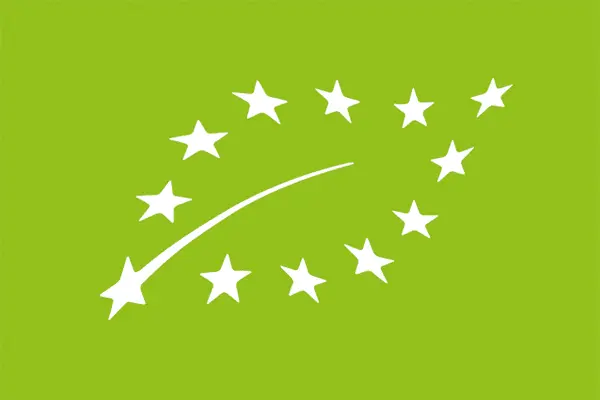Certified Quality
We believe in the value of authenticity, respect for the environment, and a commitment to excellence. That’s why we work with producers who meet rigorous standards recognized both nationally and internationally.
Each product we offer carries the essence of its place of origin. Designations of origin, organic certifications, and other quality labels not only ensure compliance with strict regulations, but also protect the traditions, landscapes, and craftsmanship that give each food or drink its unique character and identity.
What are D.O., D.O.P., and D.O.Ca.
Origin certifications are a guarantee of quality, authenticity, and connection to a specific region. These designations protect agri-food products whose uniqueness is tied to a particular geographical area and traditional know-how. Below, we explain the differences between the main types of designations:
Designation of Origin (D.O.)
The Designation of Origin is a label that certifies a product comes from a specific geographical area and that its characteristics are primarily due to that particular environment—climate, soil, local varieties, and artisanal knowledge. It also ensures that the entire process of production, processing, and transformation takes place within that region.
Protected Designation of Origin (D.O.P.)
The Protected Designation of Origin is the European Union’s legal equivalent to the D.O. It follows the same principle: the product must be entirely produced, processed, and prepared within a defined geographical area, and its quality or characteristics must be linked to that origin.
In practice, D.O. and D.O.P. are often used interchangeably, although D.O.P. is the officially recognized term within the EU framework. For example, many Spanish D.O.s have been registered as D.O.P.s under the EU system, but they are still commonly known by their traditional names.
Qualified Designation of Origin (D.O.Ca.)
The Qualified Designation of Origin is a higher category within Spain’s wine classification system. It is only awarded to D.O.s that have consistently maintained exceptional quality over a long period, under even stricter regulations.
Currently, only two regions in Spain hold this distinction: Rioja and Priorat (the latter using its Catalan designation: D.O.Q. Priorat). Among other requirements, D.O.Ca. wines must be bottled at origin and adhere to a stricter internal quality control system than that of a standard D.O.

Ministerio de Agricultura, Pesca y Alimentación (MAPA). (2020)
Map of Spain's Wine Designations of Origin (November 2020).
Retrieved from:
link to map
What is a "Viñedo Singular"?
Viñedo Singular is a special category within the Qualified Designation of Origin (D.O.Ca.) Rioja, created to recognize vineyards of exceptional quality and unique characteristics. This distinction is awarded to vineyard plots that display outstanding soil conditions, microclimate, and vineyard management.
To be classified as a Viñedo Singular, a vineyard must meet strict criteria, including:
- A minimum age of 35 years.
- Manual cultivation and harvesting.
- Low yields per hectare.
- Rigorous quality controls, including specific tasting evaluations.
- Grapes must come exclusively from the designated plot, with no blending from other parcels.
This recognition highlights the identity of the wines, ensuring their authenticity and excellence, and emphasizes the detailed craftsmanship and deep respect for the land.
What are “Vinos de Autor”?
Vinos de Autor—or “Signature Wines”—are crafted by a winemaker or producer who brings their personal vision to each bottle, creating a unique expression through a carefully selected choice of grapes and an exclusive winemaking process. These wines stand out for their distinctive personality and represent the winemaker’s individual interpretation of winemaking tradition.
Key characteristics of Vinos de Autor:
- Personal selection of grapes and plots, chosen by the winemaker to reflect their personal style.
- Exclusive vinification, using more detailed and often experimental methods to ensure a truly unique wine.
- Small-scale production, which guarantees exclusivity and exceptional quality.
- Personal expression, where each wine becomes a form of artistic creation—much like a literary signature.
Vinos de Autor are ideal for those seeking a more personal and distinctive wine experience, moving away from mass-market brands and embracing the artistry behind each bottle.
What is the Euroleaf?

The Euroleaf is the official logo that identifies certified organic products within the European Union. Its presence on packaging guarantees that the product complies with EU regulations on organic production.
What are Vinos de Pago?
Vino de Pago is the highest classification a wine can receive in Spain—ranked even above traditional Designations of Origin. It is awarded to wines produced in a very specific area with unique soil, climate, and winemaking traditions.
What defines a Vino de Pago?
• It comes from a specific site with a distinct identity.
• The grapes are grown exclusively in that vineyard.
• The wine is produced, aged, and bottled on the estate.
• It undergoes strict controls and must demonstrate consistent quality.
A Guarantee of Authenticity
This distinction ensures full traceability of the wine, from vineyard to bottle. It reflects the unique character of the terroir and the skill of the producer.
Peñín Guide
The Peñín Guide is one of the most respected publications on Spanish wine. Each year, its team of tasters reviews thousands of wines from across the country and scores them on a 100-point scale, based on factors like aroma, flavour, structure, and complexity. A wine scoring over 90 points is considered excellent, while those between 85 and 89 points are seen as very good. The guide serves not only as a reference for consumers but also as a valuable tool for wine professionals.
What sets the Peñín Guide apart is its deep focus on Spanish wines. Its team has a strong understanding of the different wine regions and gives attention to both major producers and small, independent winemakers. Every year, it hosts a showcase event for the top-rated wines in Spain—those awarded 90 points or more—offering them a platform to reach both national and international markets.
Tim Atkin
Tim Atkin is a well-known British wine critic with a long-standing presence in the international wine scene. His ratings also follow the 100-point system and carry significant influence in markets like the UK, the US, and Asia. While he reviews wines from around the world, he has shown particular interest in recent years in Spanish regions such as Rioja, Ribera del Duero, and Navarra, often publishing in-depth reports dedicated to these areas.
Wineries value Tim Atkin’s scoring for his independent approach and for highlighting smaller producers and distinctive projects. His reports go beyond tasting notes and ratings, offering insights into each region’s development and current trends. For a Spanish wine to receive 90 points or more from Tim Atkin is a mark of international recognition and prestige.

